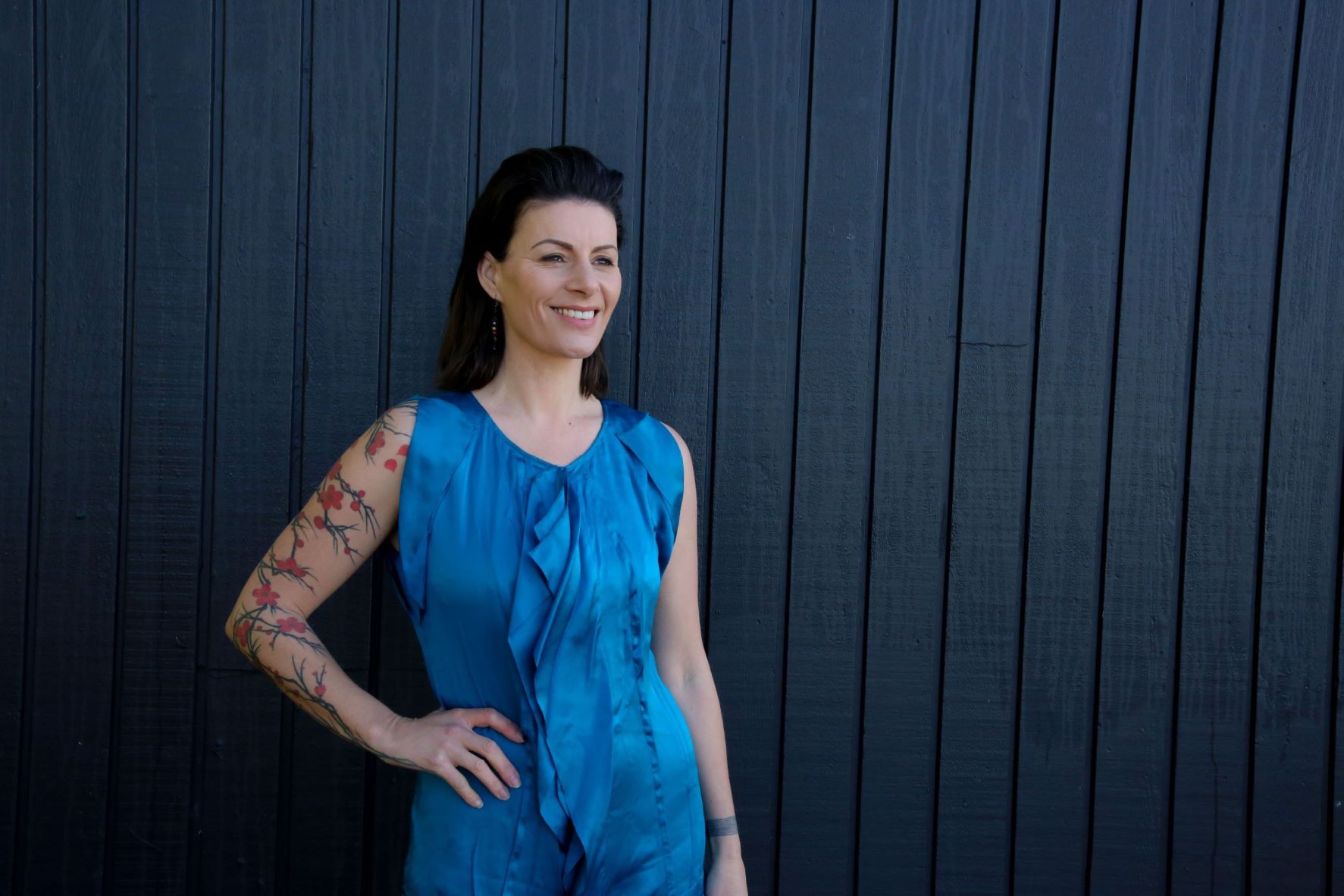
Parents have many hopes and dreams for their children’s futures. These might include getting on well with others and having friends; doing well at school; getting a good job; being able to cope with life’s challenges; contributing to the community; being a good parent; and, being mentally and physically healthy. The options are endless.
But how can we best nurture our children to increase the chance of them realising their potential? There are many factors that influence children’s development. One of these is the parenting children receive, from the very beginning. While there is no one ‘right’ way to parent children, research over a number of decades has repeatedly found some components of parenting that increase the likelihood of children developing well. There are key things that babies and children, of all ages, need from their parents. One of the most important of these is feeling that they are loved.
Once babies are developing into toddlers, they begin to need clear and realistic limits and expectations around their behaviour. This combination of love and limits is known as authoritative parenting (also known as backbone or tree parenting).
What’s love got to do with it?
Most adults know that babies depend upon them to meet their physical needs, such as being fed and kept warm and clean. It’s just as important to understand that babies are completely reliant on parents to meet their emotional needs too. And these needs are every bit as important as their physical needs. To quote Urie Bronfenbrenner, “Somebody’s got to be crazy about that kid. That’s number one. First, last, and always.”
A parent’s love needs to be unconditional: it should not depend upon the child behaving or achieving in certain ways. It’s about the child’s needs, not the parents’. Parents’ needs are very important too, however, it’s not our child’s job to meet them.
When parents can see the world from their baby’s point of view, their baby is more likely to feel loved. This means parents understanding the actual needs of their own baby, not their ideas of what a baby might need. Parents usually have loving feelings towards their child, however it is the baby’s sense of feeling loved that’s important for their development.
This ‘feeling loved’ comes about through the many interactions parent and baby have over time. Every bath, every nappy change, and every cuddle are opportunities to help a child feel loved. Warm, gentle physical contact such as hugging, rocking and holding, are an important part of meeting baby’s needs.
Some people think that what matters most for children are shorter periods of ‘quality time’ with their parents. In fact, for children to thrive, both the quality and quantity of parental time and attention are important.
When it comes to quality, it’s the quality of the interaction between parent and child that’s most important, not the type of activity they’re doing. In other words, it doesn’t have to be a ‘special’ (read, expensive!) outing or activity, but a time when the parent’s attention is fully with the child, listening to them, having fun together. Examples include Mum reading a bedtime story, having a cuddle with her child and talking about the day; or Dad looking into his baby’s eyes, smiling and chatting, whilst gently washing his baby in the bath. It helps if phones and other electronic devices are turned off or far enough away, so they don’t distract parents at these special times.
Effects of love and warmth
The relationships young children have with their parents and wha-nau affect most aspects of their development. Parent and child relationships affect:
- emotional, social and intellectual development
- learning and academic achievement
- knowing the difference between right and wrong, and the ability to control aggression
- resilience to later stress
- mental health in adulthood.
Babies are completely dependent upon their parents – when they know that their parents will be there when they need them, they are likely to develop a sense of security. This in turn enables a child to explore the world, which is important for their learning. A lot of research over recent decades shows the importance of this, but it’s not a new concept by any means. For example, early European settlers noticed the loving care Māori children received from their parents and other adults, as well as the bravery and confidence this care gave the children.
When parents provide warm, loving relationships, other aspects of parenting are likely to go better. These relationships provide the foundation for the child’s development. This is very important but as children grow, warm, loving relationships are not enough to enhance optimal development. The other side of the equation is that of setting limits, but the warm, loving relationship provides a strong foundation for this.
What is meant by limit setting?
Children need rules or limits that are clearly communicated and explained to them. Clear, consistent limits add to a child’s sense of security and are more effective when the reasons behind them are explained to the child, e.g. “we always put our seatbelt on to keep us safe before we go out in the car.” In the early years, explanations are best kept brief and simple, keeping in mind the age and development of the child. As children grow, more explanation and negotiation may be necessary.
It helps if children understand the reason behind a limit, but this doesn’t necessarily mean they will like it! These expectations work better when they focus on the acceptable behaviour (i.e. what parents want the child to do) rather than the unacceptable behaviour (i.e. what they don’t want to happen). This sometimes means ‘turning around’ what parents might be tempted to say, so rather than, “Don’t draw on the walls!” a focus on the acceptable behaviour might be, “If you want to draw, you need to use this paper.”
Although most parents will need to react to their child’s behaviour sometimes, a mostly positive approach is likely to work better. Looking ahead and trying to prevent difficulties before they happen is easier (on everyone!) and more effective. An important part of this is parents catching their child ‘doing things right’ and letting their child know this. Comments such as, “It looks like Rufus is really enjoying your gentle patting,” are likely to be more effective than endless repetitions of “Don’t hurt the dog!” (If you’ve done the latter, don’t despair, you’re in good company!)
Supervising and monitoring children’s behaviour is an important component of limit setting and helps lessen unwanted behaviour. Other important aspects of maintaining limits and boundaries include giving the reason for the rules, reminding children of what’s expected (and this will need to be repeated, probably many times!), and helping them to see how their behaviour affects others. For example, “John was upset when you knocked over his blocks.”
Firm but fair limits, suited to the child’s age and abilities, work best. It’s important to check out what children are capable of at different ages; without this knowledge sometimes parents can expect too much, or too little, of their children. This developmental understanding of each child is important in guiding the way parents respond.
For young children, the physical environment is an important part of establishing boundaries. Given their natural (and desirable!) curiosity and drive to explore, it’s up to parents to ensure the environment is safe for the child, and that precious objects are well out of reach.
Setting limits is an important way in which children learn what behaviour is acceptable, both within their family and wider community. While the nature of the limits will change as children grow, adolescents still need these to be in place too. While it may not always feel comfortable to parents, it’s an important part of the parental role to set appropriate limits. We can shower our children with affection and still explain and monitor the rules.
Children tend to feel more secure when they sense there’s an adult making the adult decisions. This doesn’t mean they will necessarily like those decisions in the short term!
Too much of a good thing?
Can limit setting go too far and be less than helpful? Well, yes. Firm and fair limits are helpful, but a focus on obedience, strict rules with punitive discipline, and failure to explain the reasons for rules are all associated with poorer child outcomes. So too is physical punishment, which among other things doesn’t teach children about more appropriate alternative behaviour. Helpful limits don’t prevent a child from doing something they are capable of. They aim to protect rather than control the child, and are generally consistent, not changing from day to day.
Consistency is key
When there are two parents (or other adults) involved in raising a child, it’s beneficial if they can have a shared view of their parenting goals. This is likely to involve discussion, negotiation and compromise from both parents. It’s best if these discussions happen away from the children. Ideally both parents would have an authoritative approach, however when this isn’t the case, it seems that having one parent with this approach is still beneficial, even if that results in parents not being consistent with each other.
What can get in the way of meeting our children’s needs?
All of us bring different strengths and experiences to our parenting role. Sometimes these are helpful and at other times they can get in the way of providing what our child actually needs.How parents think and feel about their own attachment experiences has a strong influence on their ability to meet their baby’s needs.
It’s not just what happened to parents that’s important, but how they have made sense of it that most matters. Sometimes parents can benefit from professional help in making sense of their own history, so they can avoid passing on less helpful aspects of their history to their children.
Certain beliefs about babies and parenting can be unhelpful. For example, the myth that says you can ‘spoil’ a baby by showing them too much affection and they’re better off ‘toughening up’ so they can cope with life. Tons of research indicates that in fact the opposite is true. A baby showered with love and affection is more likely to grow up resilient than one treated harshly. Some parents worry that setting firm limits means their child won’t like them, whereas in fact if such limits aren’t in place a child may end up feeling more disrespectful towards their parents. It’s worth remembering that as the adult, it’s our job to meet our child’s needs, it’s not our child’s job to make us feel liked or loved (although, it is a lovely bonus when they do!).
Our own upbringing has a big influence on how we in turn parent our own children. If a parent’s upbringing was punitive or very strict, they may promise never to be like that with their own children, and risk swinging to the opposite extreme, not providing enough limits to help their child learn. Alternatively, they may parent in the same way they were parented, perhaps with too many or unrealistic expectations.
It’s a marathon, not a sprint
We all like to see our children happy, but if keeping our children happy in the short term is the main goal, it may be harder to establish and maintain appropriate limits that will serve our child better over the long term. As the metaphor goes, “Parenting is marathon not a sprint.” In the short term, maintaining limits can be hard work; exhausting even. While there are days when the easiest option may not be the wisest course of action, if this is the norm, it won’t do our children any favours in the long run.
Love AND limits, that’s what’s needed. Equally, our default setting may lean towards the limit side of the equation. Have mealtimes become battlegrounds about menus and manners rather than about spending time together? Before you ask – there is no magic answer. Limits AND love are a good place to start.
The fully referenced version of this article is available at: www.brainwave.org.nz







